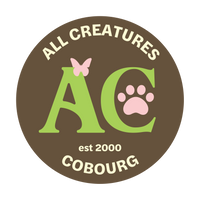
ALL NATURAL TEETH CLEANING FOR DOGS & CATS
ASK ABOUT CHIRORACTIC FOR YOUR PET

ALL NATURAL TEETH CLEANING FOR DOGS & CATS
ASK ABOUT CHIRORACTIC FOR YOUR PET

ALL NATURAL TEETH CLEANING FOR DOGS & CATS
ASK ABOUT CHIRORACTIC FOR YOUR PET

ALL NATURAL TEETH CLEANING FOR DOGS & CATS
ASK ABOUT CHIRORACTIC FOR YOUR PET

ALL NATURAL TEETH CLEANING FOR DOGS & CATS
ASK ABOUT CHIRORACTIC FOR YOUR PET

ALL NATURAL TEETH CLEANING FOR DOGS & CATS
ASK ABOUT CHIRORACTIC FOR YOUR PET

ALL NATURAL TEETH CLEANING FOR DOGS & CATS
ASK ABOUT CHIRORACTIC FOR YOUR PET

ALL NATURAL TEETH CLEANING FOR DOGS & CATS
ASK ABOUT CHIRORACTIC FOR YOUR PET

ALL NATURAL TEETH CLEANING FOR DOGS & CATS
ASK ABOUT CHIRORACTIC FOR YOUR PET

ALL NATURAL TEETH CLEANING FOR DOGS & CATS
ASK ABOUT CHIRORACTIC FOR YOUR PET

ALL NATURAL TEETH CLEANING FOR DOGS & CATS
ASK ABOUT CHIRORACTIC FOR YOUR PET

ALL NATURAL TEETH CLEANING FOR DOGS & CATS
ASK ABOUT CHIRORACTIC FOR YOUR PET

ALL NATURAL TEETH CLEANING FOR DOGS & CATS
ASK ABOUT CHIRORACTIC FOR YOUR PET

ALL NATURAL TEETH CLEANING FOR DOGS & CATS
ASK ABOUT CHIRORACTIC FOR YOUR PET

ALL NATURAL TEETH CLEANING FOR DOGS & CATS
ASK ABOUT CHIRORACTIC FOR YOUR PET

ALL NATURAL TEETH CLEANING FOR DOGS & CATS












